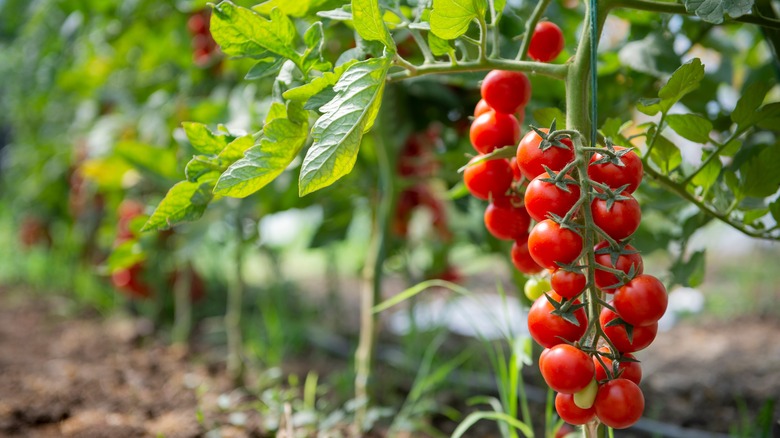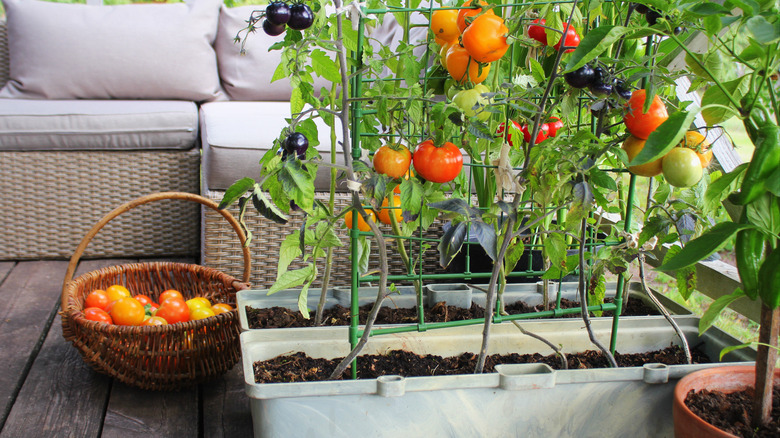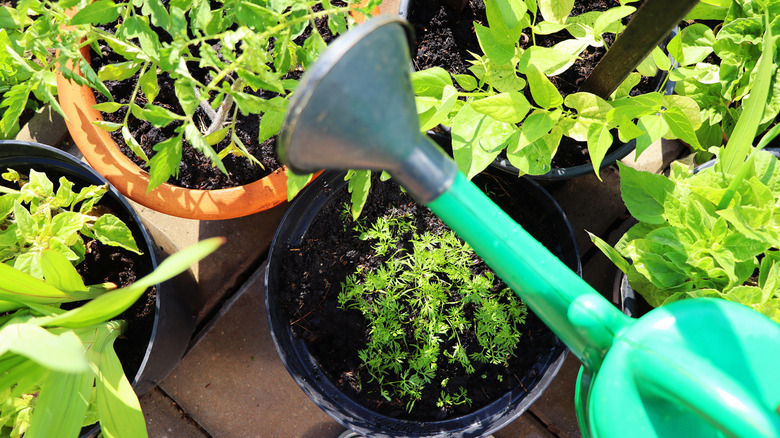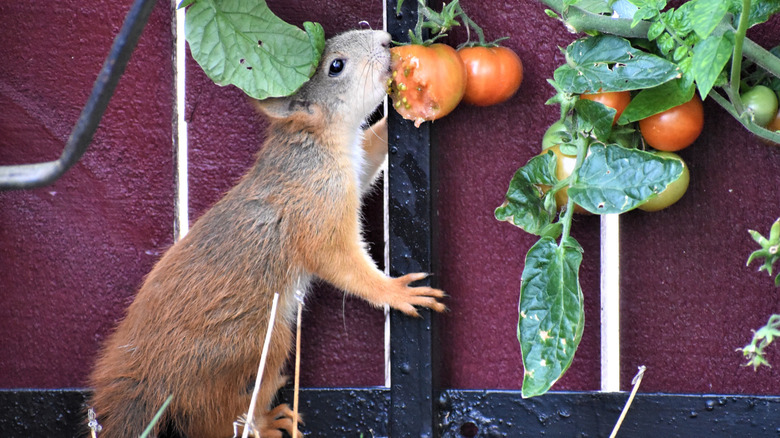What You Should Know Before Planting Miniature Vegetables
Growing your own vegetables can be a fun and rewarding experience. The process of preparing your veggie plot with fresh dirt and nutrients, poking in the tiny seeds, watering, watching them grow, and finally indulging in the fruits of your labor can be pretty fulfilling. However, you don't need acres of land or even decades of experience to start your own vegetable garden. In fact, you can have a successful harvest from the comforts of your own back deck.
To make things even easier, there is a movement towards growing miniature vegetables. This option allows you the freedom of producing many different types of veggies within a small amount of space. From tomatoes, green beans, baby carrots, and mini eggplants the sky's the limit as to what you can produce. It is an especially good option for those that don't own their property and may not be allowed to dig massive trenches in their backyard — however, there are a few things to consider before joining the mini veg revolution.
Choose your containers wisely and pick a sunny spot
Growing miniature vegetables follows the same principles as a traditional veggie patch. You want to start with good, nutrient-rich soil and have your plants exposed to plenty of sunshine and regular water treatments. Unlike a garden plot, growing mini vegetables using containers allows you to move your plants around easily so that they have direct sunlight as much as needed. The first step is to pick out the perfect vessels, choosing long rectangular plastic containers will make it more convenient to grow a wide variety of different veg.
In general, most plants need about 12 inches of depth so that their root system has enough room to grow and absorb nutrients. So, your container should be wide and deep to adequately provide the right amount of space for your plant to grow. At the bottom, the containers should have drainage holes, and because your plants will be smaller and absorb moisture faster than larger plants, you will need to water them more often. Without proper drainage, water will gather in the soil and increase the risk of fungus or bacteria forming, which would negatively affect their health.
The best mini vegetables to grow
One of the main benefits of planting miniature vegetables is that you get to use the regular seeds you would normally incorporate into a larger garden. However, because you are not waiting for the extra time it takes for the plants to reach full maturity, you get to enjoy the crop a little earlier. Easier still, if you don't have the patience to work from scratch, you can purchase small transferable plants from your local garden center. These types of vegetable plants have already started their growing process and can be ready to pop into your containers at home.
Some low-maintenance but high-yielding vegetable types include beans and tomatoes. These veggies can be grown successfully in pots or window boxes as long as you incorporate a trellis for extra stability. Radishes, onions, cucumbers, peppers, broccoli, and carrots are other great options in your mini veg garden. Also, leafy greens such as lettuce, and spinach, or a wide variety of herbs like basil, sage, and peppermint can be grown alongside to round out a beautiful home-cooked meal.
Protect your plants from pests
Planting your miniature vegetable plants will inevitably attract a number of unwanted critters. To make certain that you'll be the only one enjoying the results of your harvest, you need to keep them protected. If the containers are placed outside then they could be the ideal snacking target for squirrels, birds, rabbits, or other nibbling critters. One surefire way to save your container plants this summer is to install chicken wire or bird netting around them, so they can't be accessed by curious creatures.
Insects can also wreak havoc on your vegetable garden. Beetles, caterpillars, aphids, and other creepy crawlies can munch away at the stems, leaves, and roots of your plant destroying your veggies. Even though it may be impossible to completely stop these insects from invading your territory, with daily monitoring and keeping your soil in good health you can certainly limit the problem. Light netting can stop bigger bugs from reaching your plants, and ensuring that the surrounding area is not enticing insects can help minimize the risk. Pick your veggies right away when they are ripe and dispose of any rotted elements so that they don't attract more bugs to the scene.



